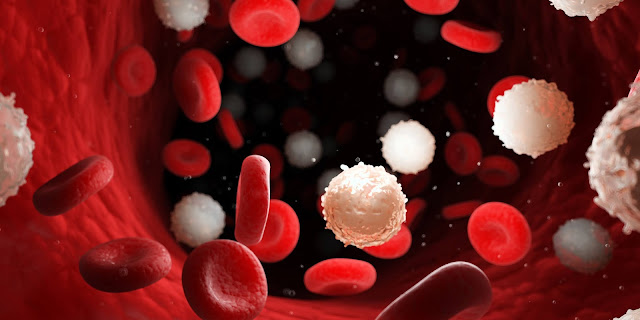Everything About Blood Cancer from Hematologist: Types, Causes & Symptoms
Blood is a vital component of the human anatomy and is the medium to transport nutrients encapsulated in blood cells in different parts of the body. Apart from this, leading hematologists share that the hormone secretion is circulated from the origin to other body parts through this group of fluid-based connective tissues. The speed of its regulation also helps in maintaining an appropriate body temperature. This is the reason why people with low pulse rates usually have low body temperature. So, in short, this component of the body is responsible for performing many functions.
One disease that is tremendously affecting people nowadays is cancer. As per the records of World Cancer Research Fund International, around 17,036,901 new cases were found in 2018. There are many types of cancers, and according to the experts in Medical Oncology, the most complicated one is a blood cancer. But these can also further categorized into many types. Let’s discuss the same to know everything about blood cancer.
Blood Cancer: The Silent Killer
Blood cancers are also termed hematologic cancers, and their development starts from the bone marrow (blood production area) and spread to different areas. This disease is identified when the abnormal cells multiply themselves and replace the original cell. It makes the blood incompetent to perform its functions and leads to several infections.
What are the Types of Blood Cancers?
There are broadly three types of cancers, known as leukemia, lymphoma, and myeloma. These types can be further divided into other variants, and it is advised to get a proper diagnosis and evaluation from a trusted Hematologist doctor for finding out the exact type.
Leukemia
This type of blood cancer initiates its development from bone marrow and primarily targets the white blood cells, which are responsible for immunity’s strength. The abnormality in white blood cells progresses at a rapid speed. Although these are immature cells, they don’t die and do not leave space for healthy cells. As a result, the blood is deprived of oxygen and leads to worsening of the medical condition. On the basis of growth rate and origin, it can be subdivided into four major groups.
- Acute lymphocytic leukemia
- Acute myeloid leukemia
- Chronic lymphocytic leukemia
- Chronic myeloid leukemia
Lymphoma
Like leukemia, it also triggers the white blood cells, but only targets the lymph nodes. The function of these nodes is to find the lymph and then turn on the defend mode to fight against the infections. To perform this task, the lymphocytes (type of white blood cell) are circulated in the body to produce antibodies with B and T cells. Leukemia affects the bone marrow and the blood, but this case is not the same with lymphoma. In Medical Oncology, it can be divided into two types on the basis of the involvement of cells and the rate of development. These are:
- Hodgkin lymphoma: The origin of this medical condition is Reed-Sternberg cell which is a kind of B cell (lymphocytes).
- Non-Hodgkin lymphoma: It can develop from any cell (B or T) and is more likely to develop than the other type.
Multiple Myeloma
This type of blood cancer starts from plasma cells present in the bone marrow and blood. The abnormal myeloma cells can lead to tumor formation known as plasmacytomas. It weakens the bone and can lead to infections. There are two types of this category of blood cancer, and these are:
- Smouldering Multiple Myeloma:
This type of multiple myeloma does not show any symptom but can lead to a high density of plasma cells (more than 10%) in the bone marrow, or blood’s M-protein level (more than 30g/L). It can further lead to active multiple myeloma.
- Active multiple myeloma:
Patients affected with this type of cancer shows symptoms and affects the following features:
o High rate of M-protein in urine and blood
o High rate of plasma cells in blood marrow
o Plasmacytomas’ presence in blood or tissues
o Osteolytic lesions
o Suffering from hypercalcemia, kidney failure, and anaemia
What are the Symptoms?
- Suffering from fever frequently
- Experiencing lethargic and weak most of the time
- Loss of appetite or feeling nauseous
- Sudden weight loss
- Sweating at nights
- A lingering ache in the abdomen or head
- Difficulty in breath
- Frequent infections
- Skin rashes
- Swelling in lymph nodes present in neck, groin, or underarms
If you observe any of the above symptoms, it is important to take the expert’s help. For the same, you can avail of Doctor Services in Virginia. An experienced team can help in curing many complex cases with the use of effective technology.
What are the Causes?
As per the professionals in Medical Oncology, the exact cause of blood cancer is still not discovered. But there are some risk factors that can increase the chances of getting affected by any blood cancer. These factors are:
o Old age
o Family history
o Some infections
o Weak immunity
As we discussed blood cancer, it is clear that it targets bone marrow, blood, and immunity. A healthy lifestyle and regular medical check-ups can help in staying fit and monitoring health. It is important to take medical advice from an experienced Hematologist or blood specialists in the initial stage of blood cancer to prevent complications.


Comments
Post a Comment